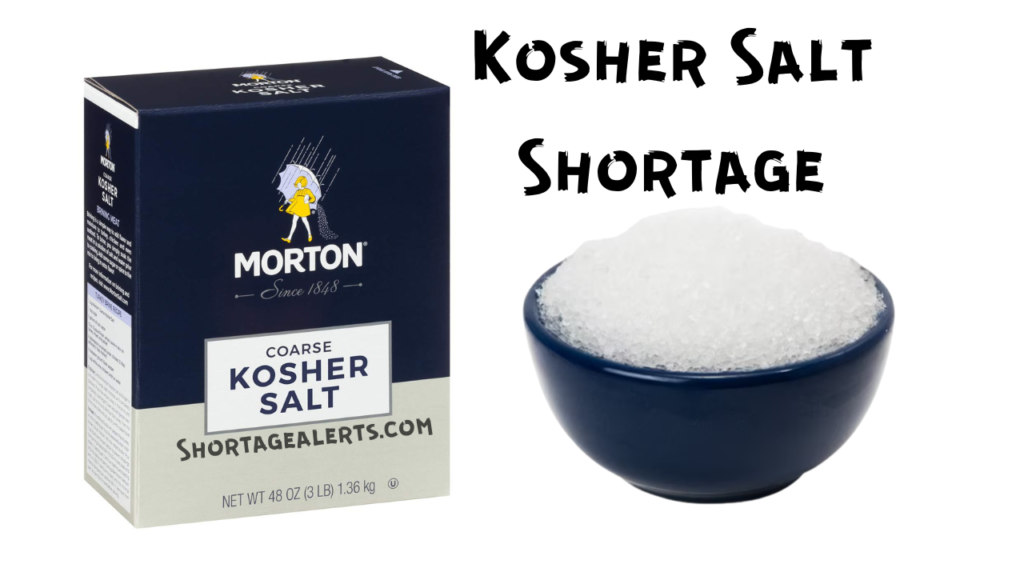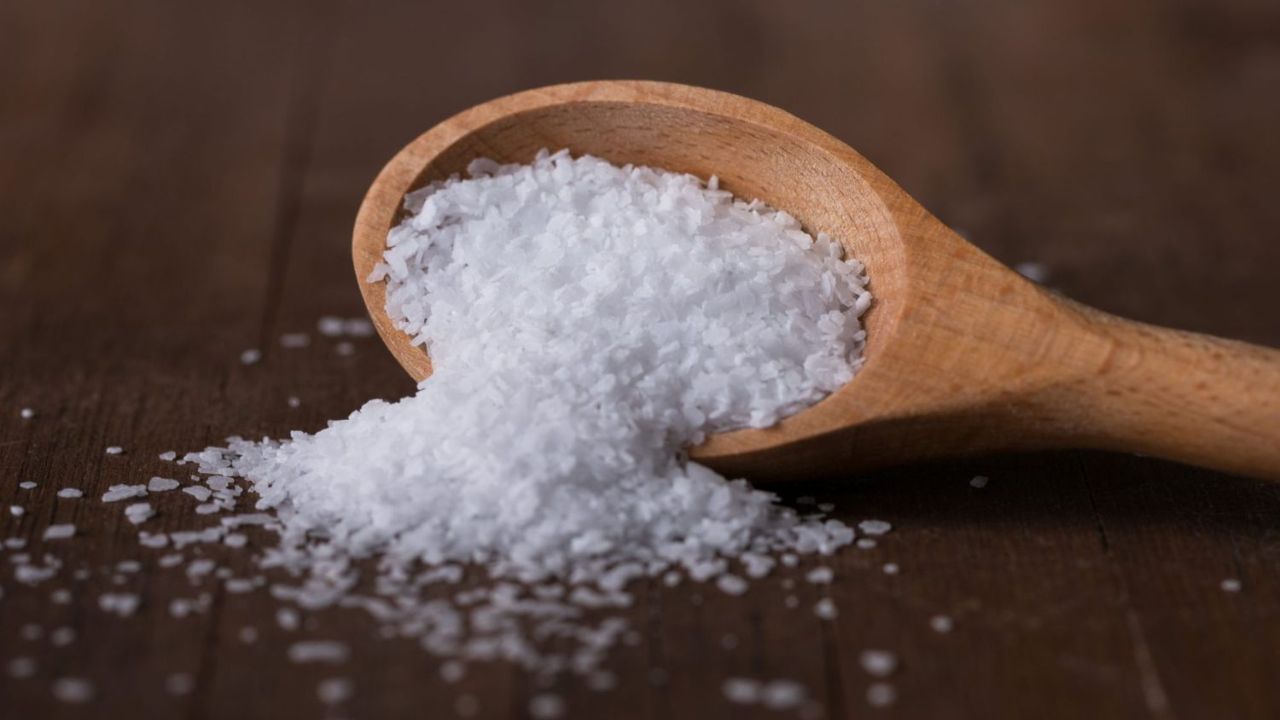Kosher salt is a staple ingredient in many kitchens, but a recent shortage has left some cooks scrambling for a substitute. What’s causing the shortage, and how can you still get your kosher salt fix? Kosher salt has long been a staple in kitchens around the world due to its versatile nature and unique properties. However, in recent times, there has been a concerning shortage of kosher salt in the market, leaving consumers puzzled and concerned about its availability.
In recent times, the culinary world has been hit with an unexpected crisis – a shortage of kosher salt. A staple ingredient in many kitchens, kosher salt is renowned for its pure, coarse texture and ability to enhance flavors. The shortage has left home cooks and professional chefs alike scrambling to find alternatives or searching for any remaining stock in supermarkets.
Overview of Kosher Salt
Kosher salt is a type of salt that is commonly used in cooking. It is different from regular table salt in terms of texture and grain size. Brands like Morton and Diamond Crystal are well-known for their high-quality kosher salt products. Many chefs prefer using kosher salt in their recipes due to its ability to enhance flavors without overpowering them.
Kosher salt holds a prominent place in the Jewish culinary tradition, its name stemming from its use in koshering meats, a process to remove blood. Yet, its uses are far more versatile. It adds a delightful crunch to baked goods, aids in the brining process, and is a vital companion for seasoning any savory dish. Thus, its absence on store shelves and in online marketplaces has left many culinary enthusiasts perplexed.
As demand continues to outstrip supply, questions arise about the causes of the shortage and how long it will endure. This article delves into the reasons behind the kosher salt shortage and explores the impact it is having on the culinary world.

Kosher Salt Shortage
Kosher salt shortage in early 2023 caused by supply chain disruptions, increased demand, and labor shortages. Shortage is easing, but it may still be some time before kosher salt is back to normal stock levels. In the meantime, try smaller stores, iodized salt, or other seasonings.
Despite its popularity, kosher salt has been facing a shortage lately. The empty shelves once filled with Morton and Diamond Crystal kosher salt have left consumers wondering about the reasons behind this scarcity. This shortage has created inconvenience for individuals who rely on kosher salt for their cooking needs.
Reasons for Kosher Salt
There are several factors contributing to the kosher salt shortage. Firstly, the increase in demand for kosher salt, especially since 2023, has put pressure on the supply chain. Additionally, the production and packaging processes for kosher salt require specialized facilities, which may have been affected by financial constraints faced by the manufacturers.
COVID-19 Impact
The COVID-19 pandemic has had significant impacts on various industries around the world, and the kosher salt industry is no exception. As people have been spending more time at home and cooking their own meals, the demand for kosher salt has surged. However, the global supply chain disruptions caused by the pandemic have made it increasingly difficult for kosher salt manufacturers to meet this increased demand.
With the closure of borders and travel restrictions, the import and export of kosher salt has been severely disrupted, leading to shortages in many parts of the world. Additionally, the necessary safety measures and social distancing protocols in manufacturing facilities have resulted in labor shortages and reduced production capacity.
This perfect storm of increased demand and decreased supply has created a challenging situation for kosher salt manufacturers and consumers alike. As the pandemic continues to evolve, it remains uncertain how long the kosher salt shortage will persist and what long-term implications it may have on the industry.
Financial Situation
The financial situation of kosher salt manufacturers, like Morton and Diamond Crystal, has also played a role in the shortage. The cost of production, packaging, and transportation has increased, making it difficult for these companies to maintain an adequate supply level. Moreover, the COVID-19 pandemic has further strained the financial resources of these companies, exacerbating the shortage.
You may also like:
Frequently Ask Questions
1. What is causing the kosher salt shortage?
The kosher salt shortage is primarily due to supply chain issues, which have impacted the availability of certain brands of kosher salt, such as Morton and Diamond Crystal. Factors like increased demand, distribution challenges, and production disruptions have contributed to this shortage.
2. Which brands of kosher salt are affected by the shortage?
The shortage has affected popular brands like Morton and Diamond Crystal kosher salt, which are widely used by home cooks and chefs. However, other brands may also experience limited availability in certain regions.
3. Can I still find kosher salt at my local grocery store?
Availability may vary depending on your location and the specific brand you are looking for. Some stores may still have limited stock, while others may have temporarily run out. It is best to check with your local grocery stores or explore alternative sources of kosher salt, such as online retailers or specialty food stores.
4. How long is this kosher salt shortage expected to last?
The exact duration of the shortage is uncertain as it depends on various factors. However, efforts are being made to address the supply chain challenges and ramp up production to meet the increased demand. It is advisable to stay updated through official sources and consult local retailers for the latest information.
5. Can I use other types of salt as a substitute for kosher salt?
While kosher salt is preferred for its coarse texture and lack of additives, you can use other types of salt as substitutes. Table salt, sea salt, and Himalayan pink salt can be used in recipes, adjusting the quantities based on their saltiness and granular size.
6. Are there any alternative recipes or seasonings that don’t require kosher salt?
Yes, there are alternative recipes and seasonings that can be used as substitutes or to enhance flavors when kosher salt is unavailable. Experiment with herbs, spices, and other seasonings to add depth to your dishes. Online recipe communities and cooking forums, like Reddit, can be great resources for finding unique seasoning blends.
7. Will the supply of kosher salt be limited in food service establishments?
Food service establishments may also experience some limitations in the supply of kosher salt due to the ongoing shortage. However, many establishments are exploring alternative suppliers and products to ensure their culinary needs are met.
8. Is there a way to preserve or extend the supply of kosher salt?
If you have a limited supply of kosher salt, you can make it last longer by using it judiciously
Conclusion
The kosher salt shortage is a concerning issue for chefs, home cooks, and culinary enthusiasts. Understanding the reasons behind this shortage, such as financial difficulties faced by manufacturers and increased demand, can help consumers navigate this challenging situation. It is hoped that with time, the availability of kosher salt will stabilize, allowing everyone to enjoy the unique taste and benefits it brings to their dishes.










